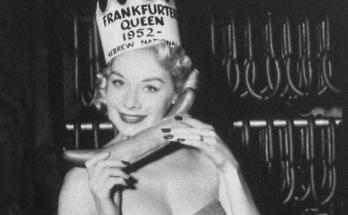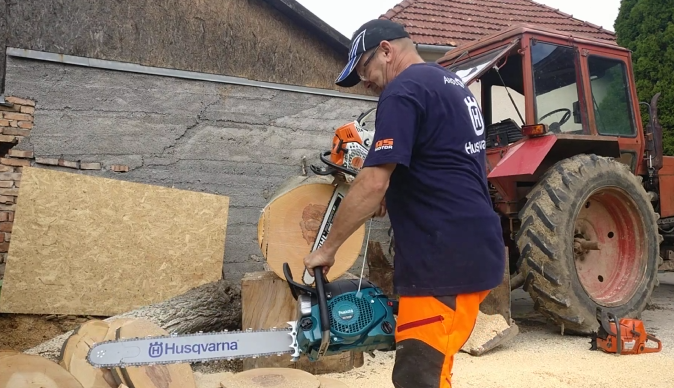
When it comes to high-performance professional chainsaws, the Stihl MS 500i and the Makita EA7900P are often in the spotlight. Both are engineered for demanding tasks like felling large trees, milling, and heavy-duty forestry work. However, they cater to slightly different audiences and come with unique technologies and design philosophies. In this article, we’ll compare the MS 500i and EA7900P across multiple categories—power, technology, weight, fuel efficiency, ergonomics, and price—to help you decide which chainsaw best suits your needs.
1. Power and Engine Performance
Stihl MS 500i is revolutionary as the world’s first chainsaw with electronically controlled fuel injection. This feature allows it to deliver exceptional throttle response and performance under varying conditions. The MS 500i sports a 79.2cc engine that produces around 6.7 horsepower, making it one of the most powerful chainsaws in its weight class.
In contrast, the Makita EA7900P is no slouch. Powered by a 78.5cc 2-stroke engine, it churns out about 6.3 horsepower. While it doesn’t include fuel injection, it utilizes a stratified scavenging system to improve power delivery and reduce emissions. The EA7900P delivers reliable power, but when it comes to raw throttle response, the MS 500i has the edge.
Winner: Stihl MS 500i – The fuel injection system gives it a quicker response and better adaptability to various cutting tasks.
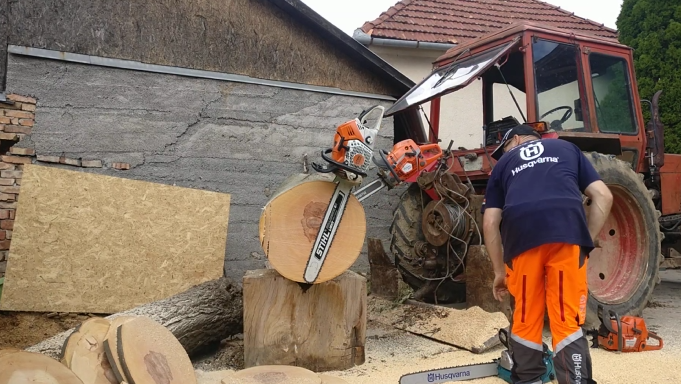
2. Starting Technology
One of the most frustrating aspects of using a chainsaw can be the startup process, especially in cold weather or high altitudes.
The Stihl MS 500i shines here thanks to its sensor-controlled fuel injection. The electronic system adjusts fuel delivery based on ambient conditions, engine temperature, and air pressure—resulting in effortless and consistent starts.
The Makita EA7900P comes with Makita’s decompression valve and spring-assisted starter, which do make the starting process smoother than many traditional saws. However, it lacks the intelligence and convenience of the MS 500i’s tech-enhanced startup.
Winner: Stihl MS 500i – Consistently easy starts in all conditions.
3. Weight-to-Power Ratio
This is where the MS 500i truly dominates. At 13.9 pounds (6.3 kg) dry weight, the MS 500i is remarkably lightweight for its class, especially considering its 79.2cc engine. The design focus was clearly on optimizing power without adding unnecessary bulk.
The Makita EA7900P, while powerful, is slightly heavier at about 14.7 pounds (6.7 kg). Though that may not seem like a big difference on paper, professionals using chainsaws for hours at a time will definitely notice the additional weight.
Winner: Stihl MS 500i – Lighter and more powerful, offering better handling.
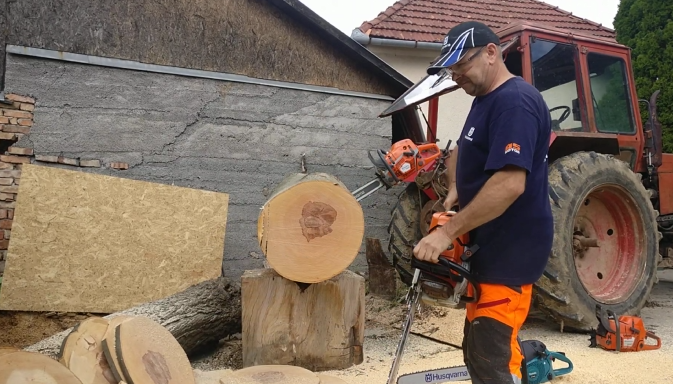
4. Build Quality and Durability
Both Makita and Stihl are known for exceptional build quality. The MS 500i features magnesium components, a high-end anti-vibration system, and top-tier plastics that can withstand extreme conditions. Stihl’s reputation for durable forestry tools is well-earned, and the MS 500i is no exception.
The Makita EA7900P is also built like a tank. Designed for rugged use, it features metal crankcases, a heavy-duty air filtration system, and professional-grade housing. It holds up well even in the harshest forestry environments.
Winner: Tie – Both models are exceptionally well built and durable.
5. Ergonomics and Handling
Professional loggers and arborists need a chainsaw that’s easy to maneuver. The Stihl MS 500i’s excellent weight distribution and low vibration make it easier on the body during long sessions. The handle layout is intuitive, and the throttle trigger feels responsive and comfortable.
The Makita EA7900P is also designed with ergonomics in mind. It includes a comfortable rear handle, rubberized grips, and a well-balanced body. However, the slightly heavier build might cause fatigue more quickly than the Stihl.
Winner: Stihl MS 500i – More ergonomic for extended use.
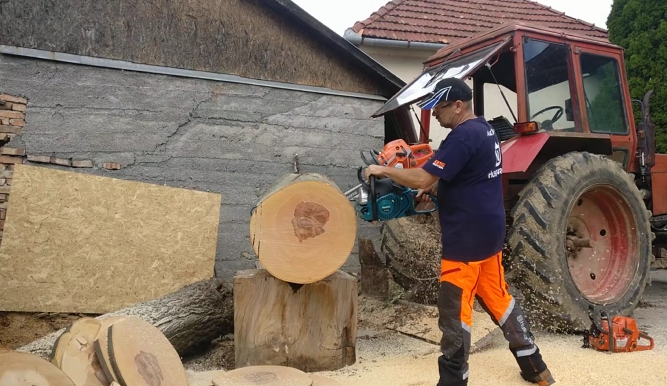
6. Fuel Efficiency and Emissions
The MS 500i’s intelligent fuel injection system adjusts fuel delivery to maximize efficiency. Not only does this result in better fuel consumption, but it also reduces emissions. Stihl has gone to great lengths to make this chainsaw more environmentally friendly without compromising performance.
Makita’s EA7900P uses stratified scavenging to reduce emissions and improve fuel use. It’s effective but lacks the real-time adaptability of the MS 500i’s injection system.
Winner: Stihl MS 500i – Smarter fuel management gives it an edge.
7. Maintenance and Ease of Use
The MS 500i features a tool-free fuel cap, side-access chain tensioner, and quick-access air filter. The diagnostic-friendly electronic system can be connected to Stihl service software, making troubleshooting easier for professionals.
The Makita EA7900P also includes user-friendly features like side chain tensioning, an easy-to-clean air filter, and accessible spark plugs. However, it lacks the digital diagnostic capabilities that Stihl provides.
Winner: Stihl MS 500i – Easier to service with smart diagnostics.
8. Price and Value
Price is often the deciding factor. The Stihl MS 500i is a premium product and is priced accordingly. You’re paying for advanced technology, lightweight design, and unmatched performance. Depending on where you buy it, it can cost anywhere from $1,300 to $1,500.
On the other hand, the Makita EA7900P is generally more affordable, retailing around $950 to $1,100. For budget-conscious professionals, it offers a lot of value and proven reliability without the bells and whistles.
Winner: Makita EA7900P – More affordable and still high-performance.
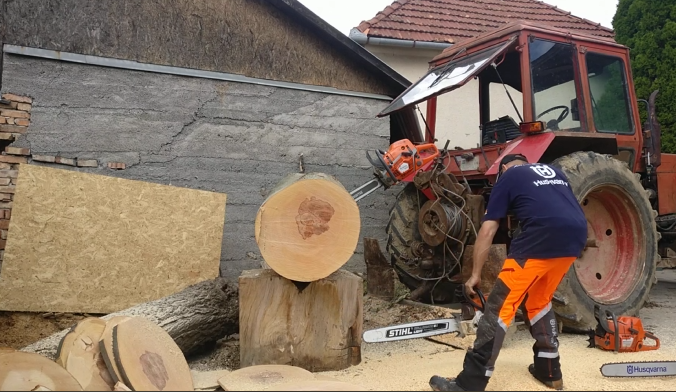
Conclusion: Which One Should You Choose?
Both the Stihl MS 500i and Makita EA7900P are outstanding professional chainsaws. However, they serve slightly different purposes:
- Choose the Stihl MS 500i if you want cutting-edge technology, best-in-class power-to-weight ratio, and superior ergonomics. It’s ideal for professionals who need top-tier performance with the latest innovations.
- Choose the Makita EA7900P if you want a powerful, durable, and dependable workhorse at a more accessible price. It’s a great value for loggers who don’t need the latest digital features but still demand excellent performance.
Ultimately, your decision will depend on budget, use-case, and whether modern tech like fuel injection is a must-have or a nice-to-have.
